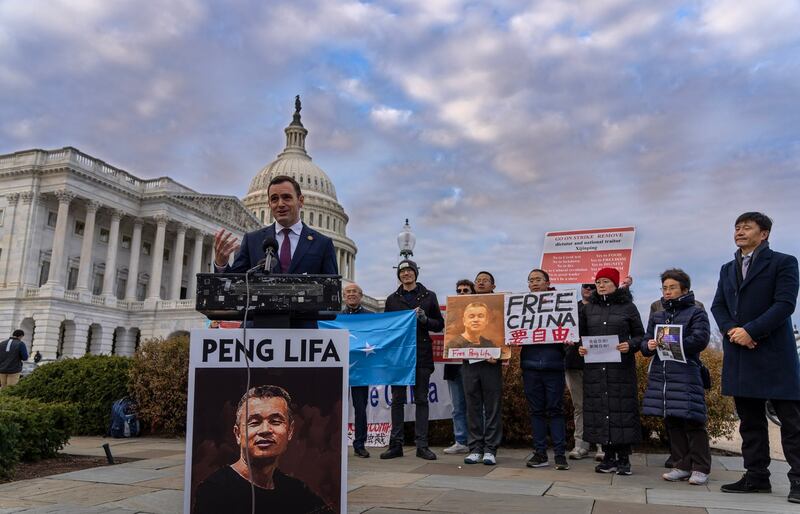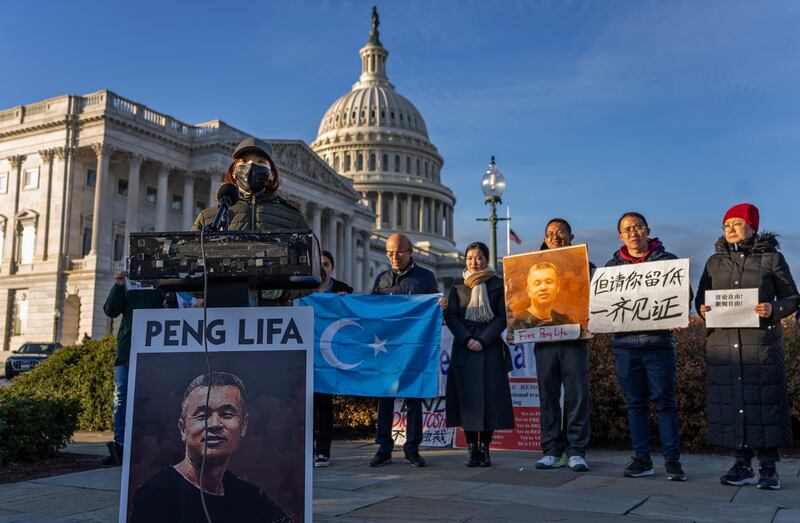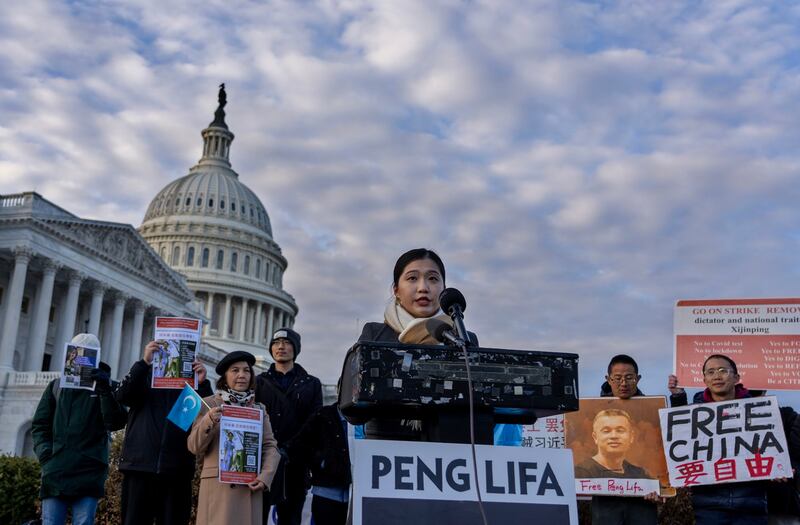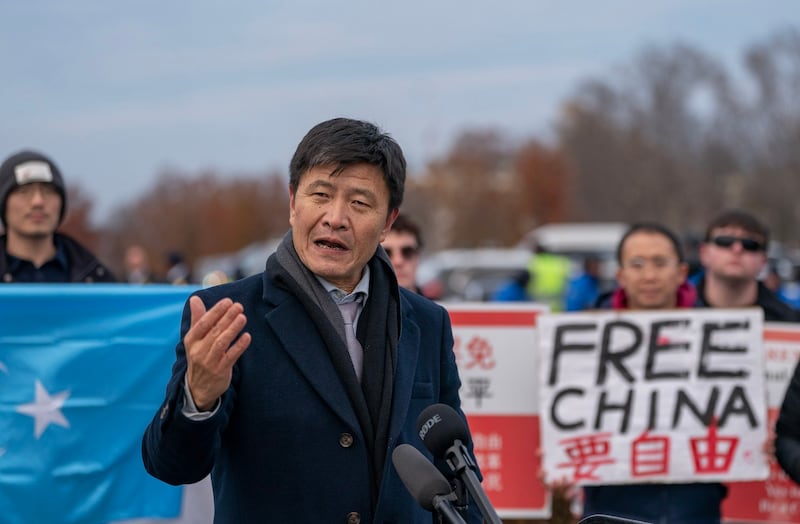Uyghur, Tibetan, Chinese and Hong Konger activists gathered in frigid temperatures outside the U.S. Capitol on Wednesday evening to mark a year since China's " White Paper" protests that briefly threatened to grow into a movement for a change of government.
The protests began in response to a Nov. 22, 2022, fire in Urumqi, the capital of the far-west Xinjiang region, which officially killed 10 people, but residents alleged that it caused 44 deaths. Many blame the country's harsh zero-COVID lockdown measures.
Wielding blank sheets of paper, protesters across China initially protested the censorship of the fire and restrictions on free speech, but the movement later broadened to include chants of " Xi Jinping, step down!" Dozens were arrested in the weeks afterwards.

Speaking outside the Capitol on Wednesday, Rep. Mike Gallagher, a Republican from Wisconsin who chairs the House Select Committee on the Chinese Communist Party, said Beijing’s reaction to the blank pieces of paper was akin to an old joke from the Soviet Union.
“A protester was passing out flyers in Red Square, and the KGB showed up and immediately arrested him,” Gallagher said. “When they looked at the flyers, they saw they were just blank sheets of paper.”
“The protester said to the KGB, ‘How can you arrest me for passing out blank sheets of paper?’’’ he added. “The KGB replied, ‘You think we don’t know what you were talking about?’”
A ‘dissident manifesto’
But Gallagher said it was clear to all what the paper represented.
“No one in China, no one watching from abroad, was at all confused,” he noted, calling the signs clarion calls against censorship and for freedom of expression in China. It was “as if a dissident manifesto had been published on the front page of the People's Daily,” he said.
A Chinese overseas student who gave her name only as Leslie and wore a face-mask and tight-fitting hat to protect her identity, told the vigil that the White Paper protesters had shocked her because they led many of her friends to come out of the woodwork in support.
“I was surprised that my seemingly apolitical Chinese colleagues turned out to be super pro-democratic,” Leslie said, noting that the outpouring had clearly shocked the Chinese authorities.

But, she said, the many arrests in the months afterwards as authorities tracked down the blank-sheet bearers had again instilled fear in many people. Maybe a future generation of Chinese people will feel safe to speak “without wearing a hat and a mask, like I am doing,” she said.
Dumbfounded
Other activists at the evening event reminisced about their shock at last year’s outpouring of public angst against Chinese authorities.
Anna Kwok, executive director of the Hong Kong Democracy Council, said she was surprised, as a Hong Konger, when mainland Chinese people had the courage to openly protest against COVID-19 lockdown policies. She said where the protests went next was unbelievable.

“When it later emerged to protest against the core, fundamental reason of a failed government, a dictator and an authoritarian, I was dumbfounded,” Kwok said, explaining some of her former mainland critics sent her apologies for attacking Hong Kong’s own protests.
“This is something I could never have imagined four years ago during [Hong Kong’s] 2019 pro-democracy protests,” she added.

Zhou Fengsuo, a survivor of the 1989 Tiananmen Square massacre, told those gathered he believed the White Paper protests represented a change in consciousness brought about by pandemic lockdowns.
“We are here because more than 10 Uyghur people were burned to death in their own homes,” he said. “We are here because in Shanghai, the most prosperous city in the world, the middle-class for the first time realized they have no freedom – if they're hungry, they cannot cry out.”
“For the first time in history after 1989,” Zhou added, “the Chinese people who benefited from the economic development realized that their life, their property, means nothing if there's no freedom.”
Edited by Elaine Chan and Taejun Kang.
